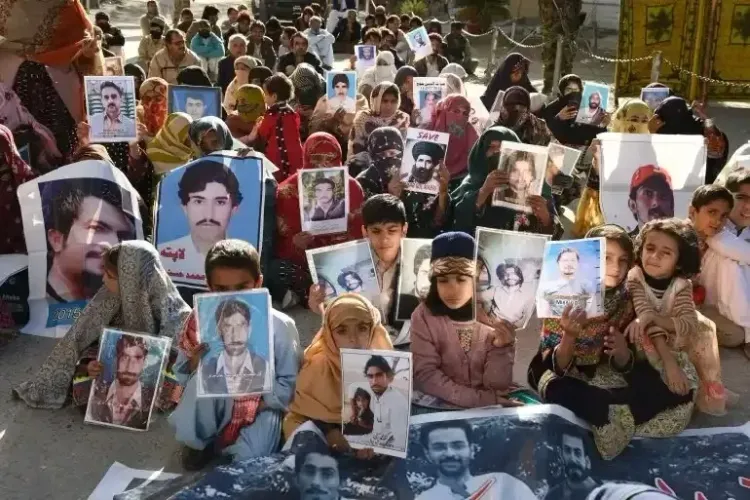What Actions is the Rights Body Urging the Pakistan Government to Take Against Enforced Disappearances?

Synopsis
Key Takeaways
- The HRCP emphasizes urgent reform to combat enforced disappearances.
- Legislation against enforced disappearances is a priority.
- Victims must be promptly recovered and presented in court.
- Accountability for perpetrators is essential for justice.
- Families of victims should have access to reparations.
Islamabad, September 1 (NationPress) The Human Rights Commission of Pakistan (HRCP) has called upon the government of Pakistan to take decisive action against enforced disappearances, labeling it a practice that violates international law and constitutes a crime against humanity.
HRCP has demanded the swift and safe recovery of all individuals subjected to enforced disappearance, insisting they be presented before a court of law. The organization has emphasized the need for the government to prioritize legislation that criminalizes enforced disappearances.
On this International Day of the Victims of Enforced Disappearances, HRCP urges the state to eradicate this abhorrent practice, recognizing its classification as a crime against humanity under international law. The HRCP has made the following demands to the federal government: Promptly and safely recover all victims of enforced disappearance and present them before judicial authorities.
“Individuals accused of crimes must face legal proceedings, ensuring their rights to due process and a fair trial are respected. Legislation against enforced disappearances should be enacted as a priority, transforming this act into a criminal offense. Furthermore, ratification and implementation of the International Convention for the Protection of All Persons from Enforced Disappearance is essential,” it stated.
The HRCP has called on the federal government to hold accountable all parties responsible for executing or facilitating enforced disappearances, extrajudicial killings, and the torture of those who have been forcibly disappeared. The organization also demanded the appointment of a new chairperson for the Commission of Inquiry on Enforced Disappearances and a restructuring of the commission to better cater to the needs of the victims' families.
In its statement, HRCP has called for a transparent system to assist victims and their families in claiming reparations for violations of their rights to liberty and due process, particularly for women who have lost their household's primary earners due to enforced disappearance.
The HRCP's statement is particularly pertinent as reports of enforced disappearances continue to emerge in Pakistan, especially in Balochistan. The Human Rights Council of Balochistan (HRCB) documented 112 cases of enforced disappearance in its July 2025 report. Out of these, 89 individuals remain unaccounted for, 15 were released, and eight were killed under extrajudicial circumstances while in custody. During the same timeframe, the rights body reported 49 casualties, including 44 men and five women, as a result of actions taken by Pakistani security forces.
Among the reported 112 cases, 106 were first-time abductions, while six involved individuals who had been previously abducted. Disturbingly, among the disappeared, eight minors were taken by Pakistani forces; one was killed in custody, one was later released, and five remain missing.
“The majority of abductions, totaling 77 cases, occurred during house raids. Twenty-seven individuals were seized from streets, shops, and offices under the guise of detention. Six were abducted at checkpoints, while two were summoned to military camps and subsequently disappeared,” the report stated.









